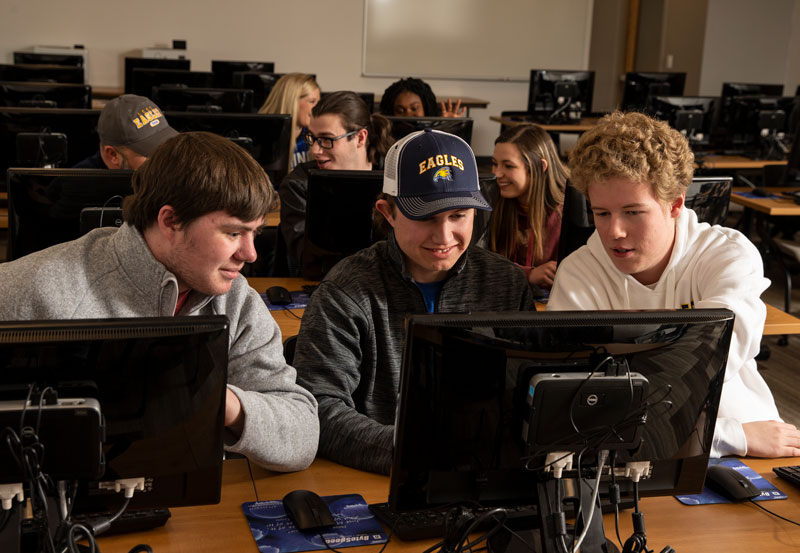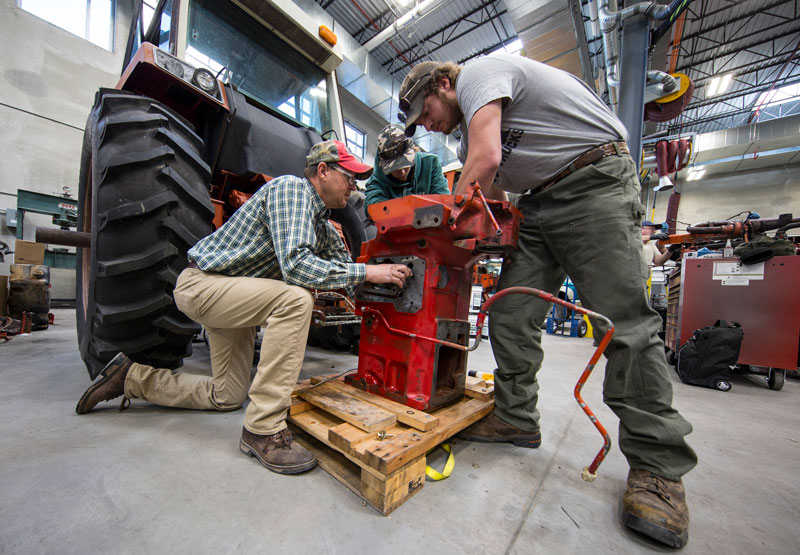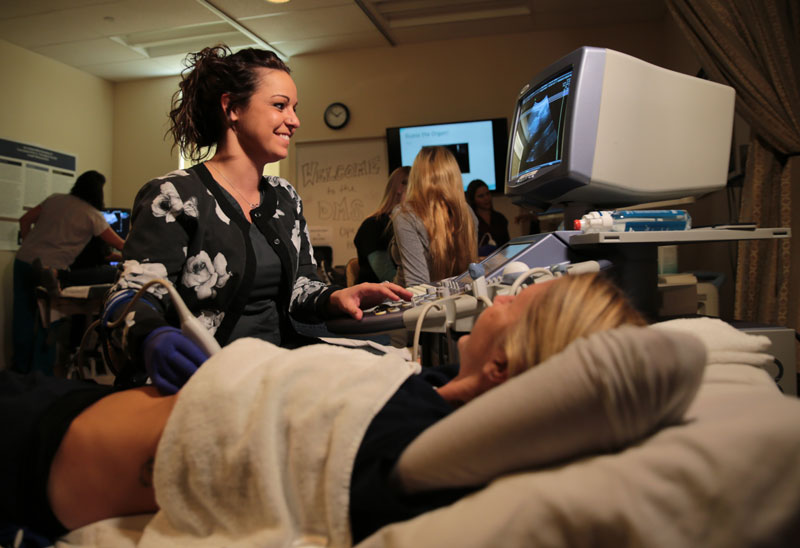Context Outside of LCCC



Computer science and technology educational opportunities continue as economic drivers supporting rapidly growing technological advancements.


Providing a workforce with the knowledge, skills and abilities needed to support new business development, existing business expansion, and attracting new industries to Wyoming is critical for economic stability.



Southeast Wyoming, and specifically Laramie County, straddles two worlds. One is that of a growing, diversifying population along with a progressive culture, driven by our proximity to the booming front range of Colorado. The other is a world that is faced with a decreasing population, a homogenous economy impacted by the steady decline in coal country, and varying degrees of willingness to embrace an alternative future. These two worlds create tension, but also opportunity. Further tension and pressure landed on LCCC in the spring of 2020 when the world experienced the COVID-19 Pandemic, upending life as it was known. Like the virus itself, the pandemic continues to have lingering effects on many aspects of life and the economy, even at the time of this strategic plan’s writing.
Through comprehensive environmental scanning, conducted as part of the strategic planning process, several themes emerged highlighting the challenges and opportunities within the external environment LCCC must successfully navigate in the future. These are summarized briefly in the following.
Population/Demographic Shifts
Population trends will present significant challenges for higher education, both in the west and nationwide. In Wyoming, recent Census reports illustrate some of these challenges. In general, Wyoming’s population is aging, and the state has been a net-importer of individuals of retirement age, and a net-exporter of working-aged people. Laramie County appears to be one of the few areas that is bucking this trend, likely a result of the close proximity to the Colorado front range. These shifts will present challenges for the recruitment and retention of LCCC’s workforce, as well as opportunities and institutional goals for engaging/reengaging more adult students.
High school populations have been the primary target for Wyoming’s institutions of
higher education, including LCCC. Each year, Wyoming graduates about 5,700 students
from its public and private high schools. Although numbers are projected to increase
for a few years, that state will only add just over 1,000 more to that number annually
before seeing a reverse trend. By 2037, the number of high school graduates are expected
to decrease by more than 13 percent. Fortunately, many states within proximity to
Wyoming will see increases in high school graduate numbers, but we should expect growing
national attention given to recruiting these individuals as other regions continue
sharp declines.
Economic Needs/Priorities
Historically, nearly three-quarters of Wyoming’s revenue is collected from the energy mineral industry. Because of the boom-and-bust nature of this industry, Wyoming is exploring opportunities for economic diversification in order to maintain a stable fiscal future. Several state and regional initiatives have advanced the concept of economic diversification including Economically Needed Diversity Options for Wyoming (ENDOW) and locally, Forward Greater Cheyenne. Along with feedback from LCCC’s own business, industry and economic development partners, several sectors have risen to the top. These include advanced manufacturing in order to grow existing businesses and attract new businesses to the region, along with entrepreneur education and services that encourage business start-ups. Both sectors intersect to provide opportunities for new product development and economic growth.
Health Care remains an economic engine for the future. With our nation’s aging population, along with ongoing medical advancements, the need for skilled allied health workers is consistently increasing. Computer science and technology educational opportunities continue as economic drivers supporting rapidly growing technological advancements. The Ground Based Strategic Deterrent (GBSD - www.gbsdbound.com) project – a massive upgrade to America’s nuclear weapons arsenal – to be launched at F.E. Warren Air Force Base will demand skilled workers in many technical occupations including construction, manufacturing, and information technology.
Funding Uncertainty
Within the current environment, the ability for Wyoming to fund education is inextricably tied to the value of coal, natural gas, and oil. Although the latter two have continued the historical cycle of boom and bust, coal, Wyoming’s foundational natural resources and as such foundational source of revenue, continues to decline. This situation presents an environment with general overall reductions in funding for higher education, and either a boom of one-time funding or a bust of significant cuts. With state funding comprising nearly 50 percent of the College’s revenue, this trend and these swings have significant impact on LCCC. Thus far, elected officials have been collectively reluctant to move to more sustainable state economy or make structural changes that would adequately fund community colleges.
Laramie County has been and will likely continue to improve economically, resulting in some relief as a result of increased local tax revenues. These currently comprise about 25 percent of the College’s revenue stream. However, it isn’t completely immune to the same challenges the state faces, with a significant amount of local revenue also tied to the minerals industry.
This leaves tuition revenue tied to student enrollment as one of the primary sources of stable funding for LCCC. Yet in conjuncture with the demographic challenges mentioned above, there is increasing competition for new students, let alone retaining those the College currently enrolls.
Competitive Marketplace
Mentioned previously, there will be significant competition for a generally decreasing
number of potential students within the reach of LCCC. The six other Wyoming community
colleges, along with the University of Wyoming, will all be competing for the same,
shrinking pool of high school graduates in the state. Both these students, and the
general adult population will be targeted from outside of the state as well, with
growing numbers of colleges and universities, especially those offering online programs,
looking to broaden their reach and pull of students as they face the same challenges.
Although the cost of a higher education in Wyoming is still a value, as noted below,
that margin is shrinking.
It isn’t just higher education that will be the primary competitive force. We will
also have to compete with the current and future job market. It is estimated that
by 2035, there are going to be more people in the United states who are age 65 and
over than there will be children under 18. Prior to the pandemic, and likely as the
nation recovers from it, for the first time there are more job openings than available
people to fill them. Higher education will be required to demonstrate its value proposition
as compared to the immediate and growing returns of direct entry into the labor force.
Employer Expectations/Needs
Providing a workforce with the knowledge, skills and abilities needed to support new business development, existing business expansion, and attracting new industries to Wyoming is critical for economic stability. Employers expect their future employees, and LCCC’s future graduates, to not only possess a post-secondary credential, but increasingly they also desire industry recognized licenses and certifications. Employers also expect a workforce with an entrepreneurial mindset.
Complimenting a technically skilled workforce, employers continue to share the need for employees equipped with the soft skills demanded for success. These soft skills, or essential skills include the ability to problem solve, innovate, and effectively communicate, as well as positive workplace behaviors such as attendance, accountability, and productive attitudes.
Generally speaking, all of these expectations can be taught and learned in a higher education setting. However, that requires students to enroll and participate. Yet employers are also demanding employees immediately, many of whom are finding such desperate needs that they hire employees without the very things they tell higher education they need. This creates a challenge of bridging the immediate need to be in the workforce with the longer-term need for a postsecondary education.
Student Needs/Expectations
The needs and expectations of students are changing. Moreover, the needs and expectations are different for traditional-aged students, adult and working students, part-time students, and Veterans. In addition to robust student engagement opportunities, “students are seeking programs that feel relevant and offer a clear path to a career” (Hanover Research, 2021) or transfer institution that leads to a career. Students expect accurate, quality service; access to the resources to be successful; and high-quality programming delivered by experts in the field.
